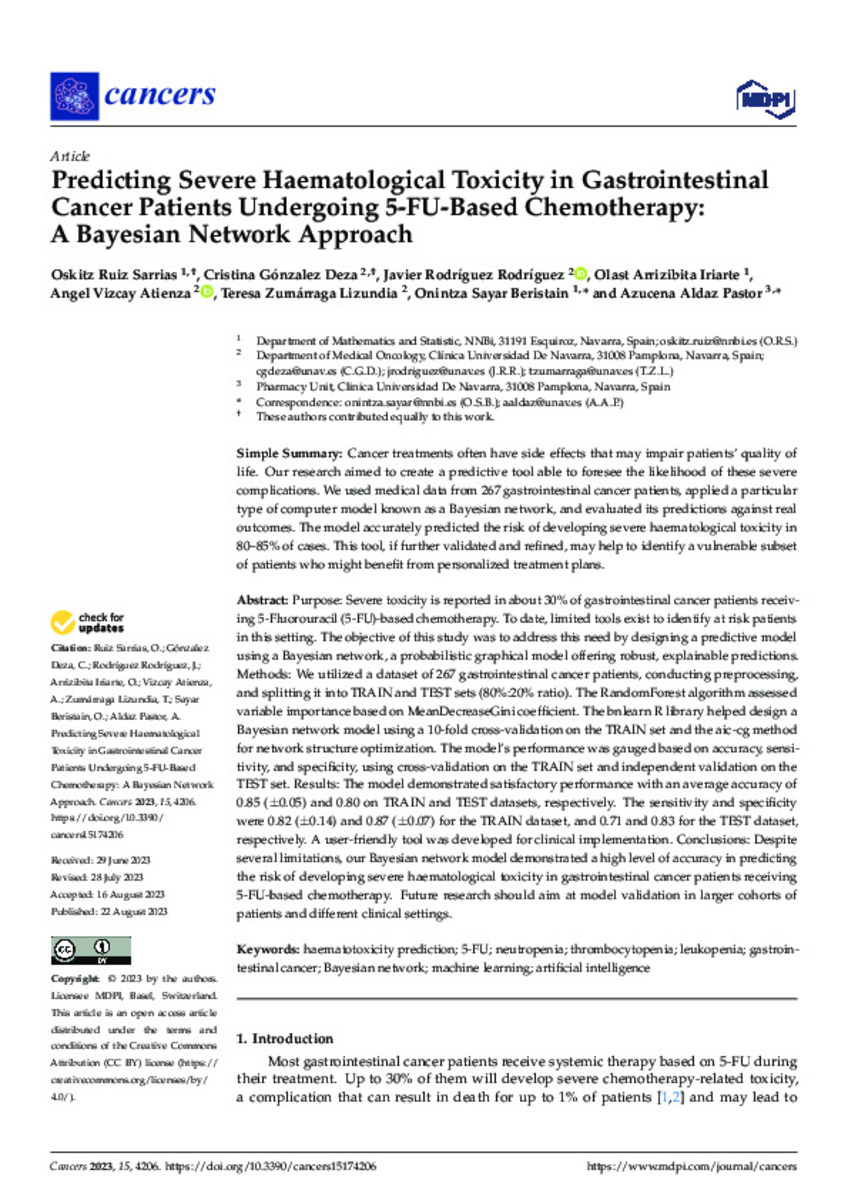Predicting severe haematological toxicity in gastrointestinal cancer patients undergoing 5-FU-based chemotherapy: A bayesian network approach
Keywords:
Haematotoxicity prediction
5-FU
Neutropenia
Thrombocytopenia
Leukopenia
Gastrointestinal cancer
Bayesian network
Machine learning
Artificial intelligence
Note:
This article is an open access article
distributed under the terms and
conditions of the Creative Commons
Attribution (CC BY) license (https://
creativecommons.org/licenses/by/
4.0/).
Citation:
Ruiz-Sarrias, O. (Oskitz); Gónzalez-Deza, C. (Cristina); Rodríguez-Rodríguez, J. (Javier); et al. "Predicting severe haematological toxicity in gastrointestinal cancer patients undergoing 5-FU-based chemotherapy: A bayesian network approach". Cancers. 15 (17), 2023, 4206
Statistics and impact
0 citas en

Items in Dadun are protected by copyright, with all rights reserved, unless otherwise indicated.








